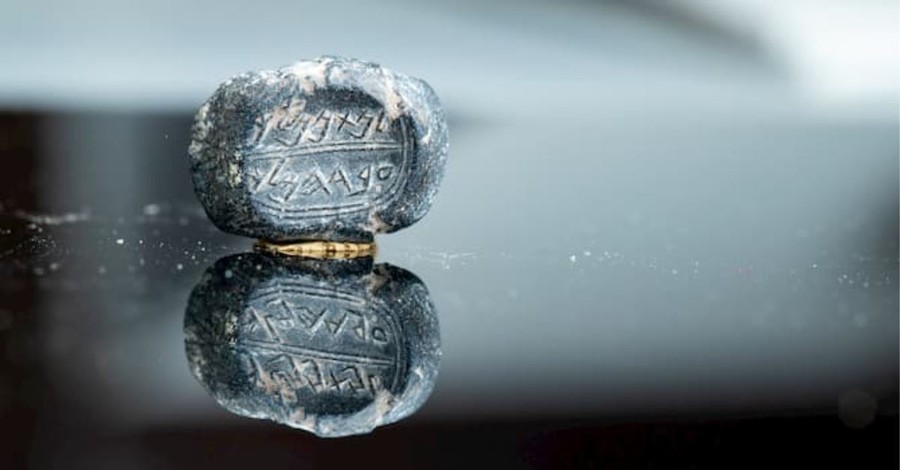
Archaeologists in Jerusalem have uncovered a 2,600-year-old clay seal they believe belonged to Nathan-Melech, who is mentioned in 2 Kings and was a servant to King Josiah.
The clay seal – called a “bulla” – is about one centimeter (four-tenths of an inch) across and reads in Hebrew, “(belonging) to Nathan-Melech, Servant of the King.”
It is the first archaeological evidence of the biblical name of Nathan-Melech, according to a press release from the City of David. He is mentioned in 2 Kings 23:11 in the context of King Josiah renewing the covenant with God.
“Since he’s not mentioned with his last name, only [his] first name, we can understand that he was a pretty famous person here in Jerusalem during the mid-7th century [B.C.], the time of King Josiah,” said Anat Mender-Geberovich of The Hebrew University.
A well-known person, she said, need not list the family lineage.
The seal would have been used to sign letters. It was found with another bulla in the City of David National Park in Jerusalem.
Significantly, the bullas were uncovered inside an ancient building that archaeologists say was destroyed when the Babylonians conquered Jerusalem.
“Large stone debris, burnt wooden beams and numerous charred pottery shards were discovered in the building, all indications that they had survived an immense fire,” the press release said.
Josiah was one of the godly or “good” kings of Judah long after David and Solomon and after the kingdom was divided. Josiah became king at age eight and destroyed idols, leading the people to repent of their sins. It was during his time that a scroll containing the Word of God was found.
2 Kings 23:11 says of Josiah: “And he removed the horses that the kings of Judah had dedicated to the sun, at the entrance to the house of the LORD, by the chamber of Nathan-melech the chamberlain, which was in the precincts. And he burned the chariots of the sun with fire.”
Mender-Geberovich said she believes it is the Nathan-Melech of the Bible because the name is rare, the bulla is from the correct time period, and it lists his title (servant).
A second seal was found reading “(belonging) to Ikar son of Matanyahu.” Archaeologists don’t know who Ikar was.
Yuval Gadot of Tel Aviv University and Yiftah Shalev of the Israel Antiquities Authority said in a joint statement that the discovery of the bullas is “exciting” because they were found in an excavation and not on the antiquities market, which can contain fakes.
“These artifacts attest to the highly developed system of administration in the Kingdom of Judah and add considerable information to our understanding of the economic status of Jerusalem and its administrative system during the First Temple period, as well as personal information about the king’s closest officials and administrators who lived and worked in the city,” they said.
Michael Foust is a freelance writer. Visit his blog, MichaelFoust.com.
Photo courtesy: Bulla Eliyahu Yanai, City of David










